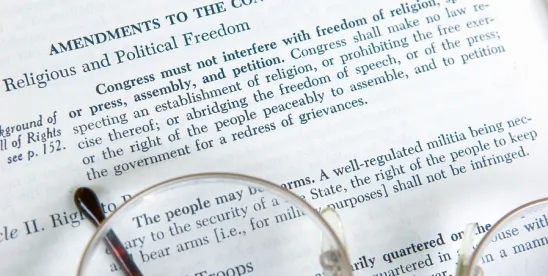The announcement by Michael Flynn, the former national security adviser, that he wouldn't respond to a subpoena from the Senate Intelligence Committee—requesting a list of contacts with Russian officials—had TV news producers (and members of Congress) scrambling to get Fifth Amendment experts on the line. But Flynn wasn't breaking new ground: Two years earlier, when former top aides to New Jersey Gov. Chris Christie refused to provide documents to a state investigative committee, they also cited their Fifth Amendment rights against self-incrimination. Their refusal was upheld in a 98-page opinion by a New Jersey Superior Court judge, who found that the subpoena unconstitutionally compelled testimonial evidence. In doing so, the judge relied on the "act of production" doctrine, which holds that regardless of content, the act of producing documents may itself have a testimonial, and thus incriminating, quality.
The "act of production" doctrine gestated in the 1970s, when the absolute protection traditionally afforded "private books and papers" gave way to a more nuanced evaluation of whether the act of selecting and producing material, regardless of its content, could be construed as "testimonial" in nature. The doctrine officially arrived with the U.S. Supreme Court's decision in Fisher v. United States, 425 U.S. 391 (1976), where the court explained that "an act is testimonial when the accused is forced to reveal his knowledge of facts relating him to the offense or from having to share his thoughts and beliefs with the government." Still, the court declined to find Fifth Amendment protection for the tax preparation documents at issue in that case, in large part because their "existence, custody, and authenticity" were a"foregone conclusion."
Republished with permission from the Connecticut Law Tribune. Originally published here.
Read the other articles in the series:
Restitution for the Corporate Victim
Fourth Amendment Exception Allows Customs to Search Personal Devices.




 />i
/>i

